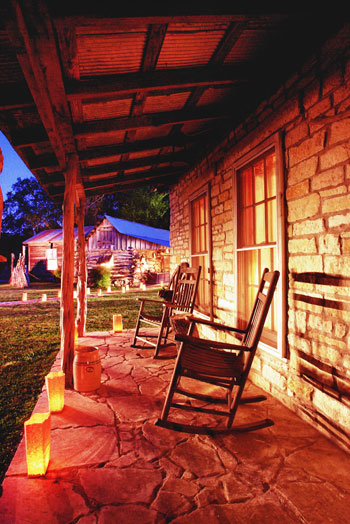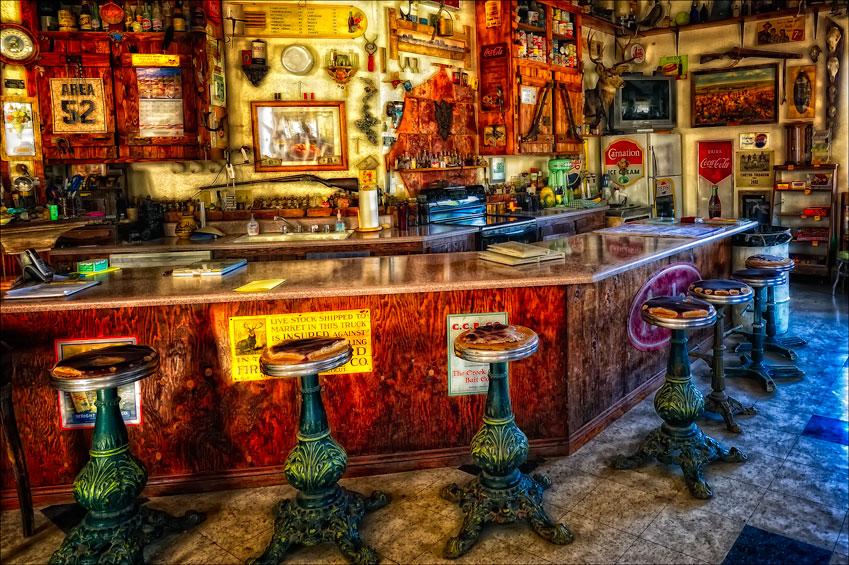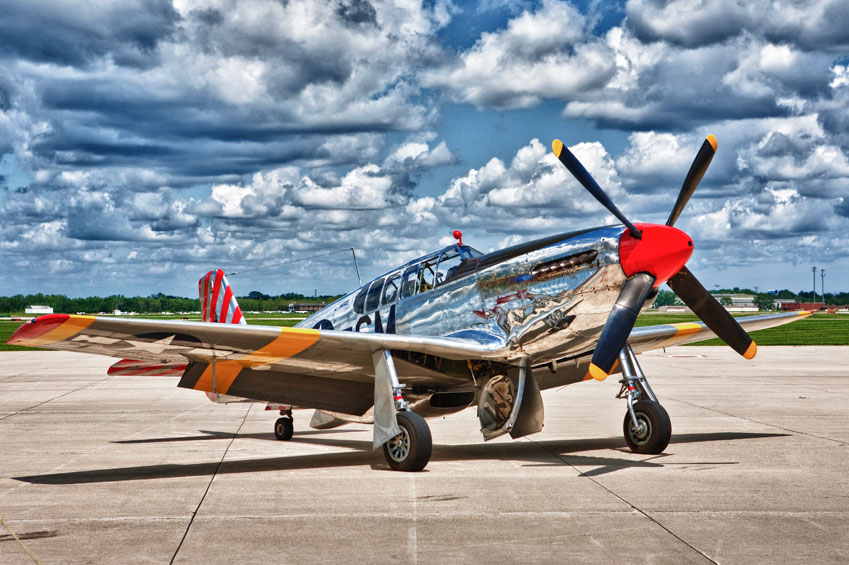Best Inkjet Paper for HDR Printing
What is HDR?
From the Wikipedia article on the topic:
"In image processing, computer graphics, and photography, high dynamic range imaging (HDRI or just HDR) is a set of techniques that allow a greater dynamic range of luminance between the lightest and darkest areas of an image than current standard digital imaging techniques or photographic methods. This wide dynamic range allows HDR images to more accurately represent the range of intensity levels found in real scenes, ranging from direct sunlight to faint starlight."

"High-dynamic-range photographs are generally achieved by capturing multiple standard photographs, often using exposure bracketing, and then merging them into an HDR image. Digital photographs are often encoded in a camera's raw image format, because 8 bit JPEG encoding doesn't offer enough values to allow fine transitions (and also introduces undesirable effects due to the lossy compression)."
So stated simply, we capture, process, and print HDR images to:
a) create images that more accurately reproduce what the human eye can see in terms of exposure
b) create images that offer a heightened view of reality with greater saturation and tonal range
Read More about Making HDR Images
68lb. UltraPro Gloss 2.0 Paper
68lb. UltraPro Gloss prints vibrant colors and deep blacks with any inkjet printer. 10.4mil thickness gives your prints true photo lab quality. Compatible with any inkjet printer, this paper dries instantly for immediate quality and resistance to smears.
- Surface: Glossy
- Tone: Bright White
- Weight: 68lb. / 270 gsm
- Thickness: 10.4 mil
68lb. UltraPro Satin
If you print, you have to have UltraPro Satin in your paper inventory. It produces professional quality results and works with virtually any image. The UltraPro Satin looks and feels just like photo lab satin - a lightly textured surface that breaks up reflections and minimizes fingerprints.
- Surface: Satin medium texture
- Tone: Bright white
- Weight: 68lb. / 270 gsm
- Thickness: 10.4 mil
Polar Gloss Metallic 255
Polar Gloss Metallic 255 is a unique inkjet paper that closely matches the look of photo lab metallic prints.
- Surface: Glossy photo metallic
- Tone: Warm
- Weight: 255 gsm / 66lb.
- Thickness: 10.4 mil
Polar Luster Metallic 255
Polar Luster Metallic gives you the unique metallic look with a classic luster surface. (Combine our Arctic Polar Luster with Polar Gloss Metallic 255)
- Surface: Luster texture photo metallic
- Tone: Warm
- Weight: 255 gsm / 66lb.
- Thickness: 10.4 mil
How do I make HDR images?
There are a number of ways to create an HDR image. While this article is not intended to teach you HDR processing, you should know a little about how to get started.
To arrive at an an HDR image, you can either process multiple image exposures or use data from one image to make an HDR image. The best method is to expose a single scene using multiple shutter speeds. This will afford you the most amount of information, especially in shadows and highlights.
Processing HDR Inside Photoshop
HDR merge in Photoshop (Cambridge in Colour)
HDR merge in Photoshop Elements (Photoshop Support)
Single Image HDR in Photoshop (Layers Magazine)
Processing HDR in Lightroom
HDR look in Lightroom (Adobe)
Software for creating HDR images
Software that plugs into Photoshop, Photoshop Elements, or other editing program is available to process HDR images. As with most specific purpose tools you will get lots of adjustment capability. These programs can be very useful, especially if you are committed to HDR photography and have a little extra money to spend on the task.

One of the most well known resources for HDR images and technques is Stuck in Customs. We encourage you to browse the site and watch this HDR technique video.
Here is a non-exhaustive list of HDR software and plugins:
There are more choices. A web search for "HDR software listing" or "HDR software reviews" will reveal your options.HDR images ready...Now what inkjet paper is best?
Given that HDR can mean different things depending on your desired look and processing technique, there a number of Red River Papers to consider. We think it's safe to break HDR photos into two categories: HDR to achieve a full exposure range and HDR to create the hyper-realistic and intensely detailed image.
The Must Have Inkjet Paper for HDR Images
Polar Gloss Metallic - There is some debate if this paper was invented for HDR or it was the other way around. In any case, Polar Gloss Metallic is the ideal surface for the bold colors, broad exposure range, and hyper-realism of HDR processing. This paper is a high gloss with a captivating iridescence that adds amazing depth to your prints.
HDR Papers for full exposure range images

UltraPro Gloss 2.0 - Our most popular gloss is good at creating deep blacks, smooth mid-tones, and brilliant highlights.
UltraPro Satin - Add a little texture to your image with the most popular Red River Paper. The medium satin finish and warm tone are great for landscapes and portraits.
Polar Matte - This smooth non-reflective matte is the perfect surface when you want details to be first and foremost. Papers with no reflection are best for keeping viewers eyes on the contents of the image.
HDR Papers for bold, brilliant, or over-the-top reality






